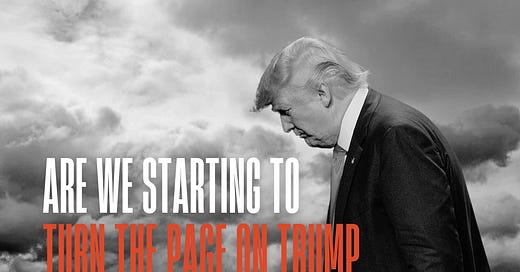As I sat down with the panel on Mid Atlantic to dissect the aftermath of the recent Trump-Harris debate, one theme became glaringly obvious: Trump's utterances, no matter how outrageous or baseless, have too often gone unchecked for the last nine years, dismissed as part of his usual antics, while other politicians face greater scrutiny. So when he came up against a competent adversary like Harris, he was left exposed. I think he believes his conspiracy-laden world, where what he think he sees on TV is the truth. Even Republicans were aghast at his inept performance and lack of policy detail.
Denise Hamilton summed up Trump’s debate performance as a moment where Harris "dog-walked that man," pointing out that his lack of preparation and policy depth was glaring. But it's not just Trump's inability to deliver coherent answers that stands out. Denise added, "I want a leader that does their homework, that cares enough about me to prepare."
The debate also raised questions about how media narratives influence public perception. Logan Phillips, our go-to pollster, noted that despite Harris’s strong showing, the polling data hasn't shifted dramatically: "We do know that when you win a debate and when the polls the night afterwards show you won the debate decisively, it does on average lead to a polling boost." However, even when Trump's statements are debunked on-air, his base remains remarkably steadfast. It’s a perplexing dichotomy that speaks volumes about the media's role—or lack thereof—in swaying public opinion; things seem baked in for most.
Moreover, Aram Fischer observed Harris's strategy to be particularly effective, often poking at Trump’s vulnerabilities to throw him off his game. "Kamala’s basic pattern was, say something substantive about policy, then close with a jab that made Trump want to punch her," Aram pointed out. It's clear that Trump’s lack of a clear vision was exposed, leading him to ramble and air his most bizarre claims, like pets being eaten.
David Smith, weighing in from London, aptly noted, "If you're going to blatantly lie, then you're going to be the one who gets fact-checked." This, of course, is a fair point, but it leads Trump supporters to wrongly whinge about a supposedly biased media that aids Trump's portrayal of himself as a victim.
As we explored the debate fallout, the challenge remains: how do we navigate this landscape where the media's treatment of Trump is both a necessary check on misinformation and a potentially self-defeating cycle that perpetuates his martyrdom narrative? The panel’s insights underscored that while Trump's bombast warrants scrutiny, as Harris said, we may be turning the page on this and Trump.















Share this post